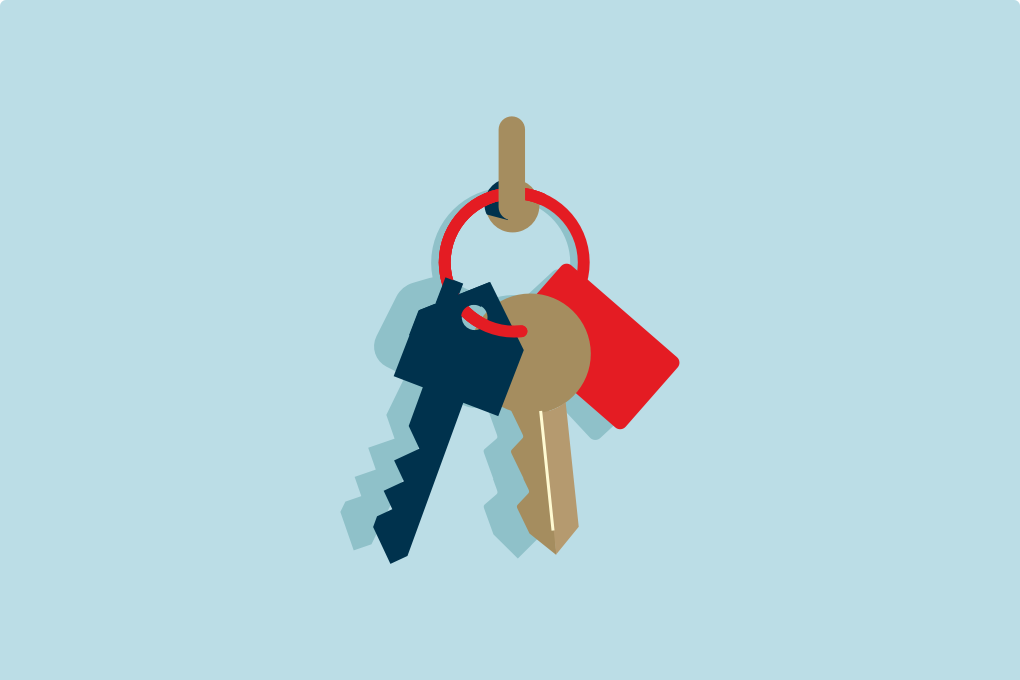Step 1: Savings
To help you save, it’s important to set a realistic goal that takes into account your current income. Meeting with a mortgage advisor will help you calculate the true cost of a home and give you an idea of what the buying process requires.
For example, a mortgage advisor will check your credit score at the beginning of the process, explain what affects it and give you advice on how to improve it. The advisor can also help you establish a saving strategy and inform you of any fees to take into account, such as the welcome tax (land transfer tax) and moving fees. It’s crucial to have the right support from the very beginning to avoid any unforeseen expenses.
Step 2: Down payment
To buy property, it’s recommended that you have 6.5% of its value at minimum. This includes at least 5% for the down payment, as required by regulatory authorities, and 1.5% for start-up costs. Among other things, these fees cover notary fees and mortgage loan insurance premiums if your down payment is below 20% of the purchase price.
To budget for your down payment, getting a mortgage pre-approval is recommended; this will guarantee the maximum amount that you can borrow. With this information, you will be able to calculate the amount you will need to have saved for your down payment before visiting open houses.
Looking for a mortgage?
Find out how much you can borrow with our online calculator.
Step 3: Open houses
Now that you’ve saved enough for a down payment and received a mortgage pre-approval, it’s time to start visiting open houses. Once you’re on site, be sure to ask about fees associated with the property, such as municipal taxes or condo fees, if applicable.
These fees vary according to the type of property and can sometimes significantly increase the monthly cost of your new home. For example, condo fees in the Greater Montreal Area can reach up to $198 per month on average. Ideally, the monthly expenses for your new home should allow you to keep saving for your other goals while allowing you to maintain the same lifestyle.
Step 4: Buying
This is it—you’ve just put in an offer for your dream home. Is everything in order? Is the house hiding any defects? An inspector will be able to give you an idea of potential work to be done on the property once you’re the owner.
A home inspection costs between $450 and $550 on average, depending on the type of property and its year of construction. You’ll have to take these fees into account when creating your budget.
Once the inspection has been completed and all the clauses in the offer have been fulfilled, you’ll have to go to the notary. For this step, budgeting around $1,000 is recommended. Note that this fee varies depending on the complexity of the case and the type of property in question. If you followed the advice outlined in step 2, then you’ve already accounted for these fees.
In addition, if the seller has paid the municipal or school taxes for the full year, you will have to reimburse them for the period during which you are the owner.
Step 5: Welcome home
You have the keys to the house and it’s time to start decorating. All that remains is to pay the so-called “welcome tax,” which is officially called the “property transfer duty.” You only pay it once; it is a prorated calculation based on the greater amount between the municipal assessment and the purchase price. For example, for property worth $300,000, the transfer duty will amount to about $3,000 in the Montreal area.
You’ll also have to pay municipal and school taxes every year. School tax rates are determined yearly by the school board covering the territory and is paid by all homeowners, even those who don’t have school-age children. For property in Montreal worth $300,000, the school tax for 2018–2019 would amount to about $490.
As for municipal taxes, the rates vary depending on your neighbourhood. You should anticipate having to pay annual taxes worth between 0.5% and 1% of your property’s market value, as determined by the municipal assessment.
And going forward, make sure you have a financial cushion so you can maintain your property with no difficulties.
Buying your first home is a big step in your life. It’s worth taking the time to plan your finances throughout the whole process. If you’re able to comfortably see yourself handling each of these steps, that means you’re ready to become a homeowner.
If you have any doubts, feel free to call an expert, because everything’s better with the right tools and advice.
